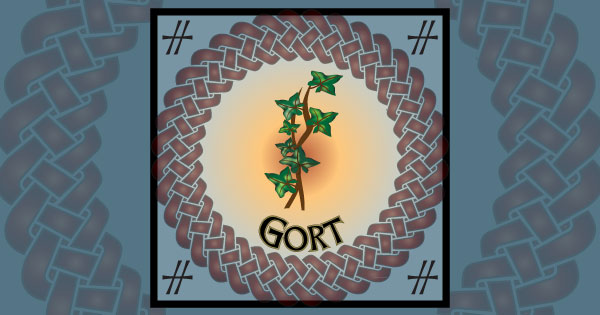Ivy has many superstitions and beliefs attached to it.
Because it had the ability to form dense thickets in woodland, grow where other plants could not and block out the light from even the mighty oak, ivy was believed to be very powerful by the Druids, more powerful than its enemy, the vine and quite sinister.
The ivy and the vine have been seen as enemies since ancient times. This seems odd since the same Greek and Roman gods are associated with each.
Bacchus, god of wine
In Greek mythology ivy was sacred to Osiris and also associated with Dionysus. In Roman mythology Ivy was connected to Bacchus, the god of wine as it grew over his home land.
Bacchus is often portrayed wearing an ivy crown, perhaps because this was once thought to prevent intoxication. The poisonous berries of the ivy, when ground into a powder were also once believed to be a hangover cure.
The link between Bacchus and ivy was taken over to England where old English Taverns would display ivy above their doors indicating the high quality of their drinks.
The proverb ‘Good wine needs no bush’, meaning good wine speaks for itself, comes from this practice.
Gort, G – Ivy, a symbol of strength and determination to the Druids, is the twelfth letter of the ogham alphabet, gort, and the eleventh month in the Celtic tree calendar, representing September 30th to October 27th.
Protection from evil
In old Ireland ivy was thought to provide protection from evil when growing on or near to a dwelling.
However, if it should die or fall down then misfortune would fall upon those therein.
Ivy was often carried by young women for good luck and fertility. Used at weddings intertwined with holly, the ivy would symbolise fidelity and at Yule-tide, would bring peace to the household.
Ivy was also linked to inspiration and worn by poets in the form of a crown.
